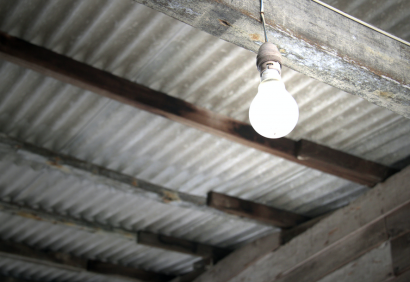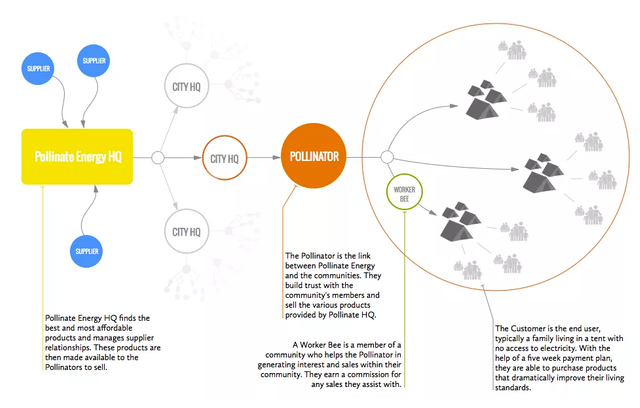I am going to raise some comments on the podcast and tie it in with some of the projects that I am working in with ElectriCChain, SolarCoin and SolcryptoJV. I've actually been working on this area myself piece by piece for about 15 years, and that has led me to apply some new technology from blockchain to the problem in the last 2-3 years.
Podcasts that I listened to: The Energy Gang Podcast

Title: Are We Making Global Energy Poverty Worse?
Found here on Soundcloud.
Well, it's been widely quoted over at least the last 15 years that there is a great energy divide. I remember back in 2001 it was quoted that over 2 billion people didn't have access to energy on a daily basis. Nowadays there is a number quoted that is about 1.5 billion people. That is still a big problem and a huge number.
I would like to weigh in and say that this is one of the greatest problems of our time and human history and for the simple reason that people that could be contributing to open debate and helping solve the world's tough problems, cannot when they don't have access to energy for their own requirements such as education for women and education in general.
Jigar Shah actively weighs in on the heated debate in the podcast blasting the likes of Foreign Policy and The Gates Foundation for promoting the idea that they don't need to concentrate on poorer people and giving them access to energy. These people don't know what they are talking about in my opinion at least. Have they themselves actually been to a Nepali village that didn't have lights on a doctor's medical centre where he was forced to deliver babies at night by candles, forgotten by the modern west? I've seen it with my own eyes. Have they seen people in Kathmandu ration power because of blackouts up to 18 hours per day? I've been in it and talked to small scale manufacturers frustrated because they cannot do normal business each day.
Some solutions include greater provenance over where and how the distributed solar electricity was generated. And tying this provenance to the blockchain. These are active areas of research and development that we are doing at ElectriCChain and SolcryptoJV. We've even found a way to tie things together with Steem.
After listening to the Podcast, I am on the side of the debate of practicality. Let's just get out there now and do it. Let's try new things, new technology's and risk it all. Because there is no greater return to the whole of humanity than bringing more intellectual knowledge to planet Earth. We are actually running out of time.
We need to promote small and medium sized enterprises and consortium such as what Aaron Leopold and Power For All are doing and other groups like Pollinate are doing in India.
Monique Alfris gives a great speech here about their good work that they are doing at Pollinate. Pollinate focuses on training and education of local entrepreneurs so that they can go out and start their own micro-energy businesses. I find this a practical solution and a scalable solution. Because it places responsibility back in the hands of local entrepreneurs and a solid foundation for improvements and feedback. It is from the bottom up, and practical. I believe that this is a way forward.
We need good engineers to actually work on these solutions and train more engineers locally for small and medium enterprises. That means actually paying them for work that they do with the design and operation and maintenance of distributed micro-solar energy. So we need new types of free enterprise consortiums to work on this area.
We need to figure out how to bundle and de-risk these smaller micro-grid projects so that larger institutions such as the World Bank and the Asian Development Bank can invest according to their own guidelines.
We basically just need more people that are talented working and engaging inside this area, and in addition training more people.
So that's where some of the projects that we are working on come in. These are still figuring out some parts but we will announce them in due time but a lot of the ideas resonate in the areas that I have discussed.
-lpninja
Yes, i believe you! I have seen similar stuff myself in Indon. I think that energy poverty is indeed still a serious problem, especially in countries with cold and harsh winter.
But, i am curious on how you are going to link this problem to the steem blockchain?? Write a post on it maybe????
Downvoting a post can decrease pending rewards and make it less visible. Common reasons:
Submit
Thanks for the insightful comments @coinbitgold! Yes, we have made a framework based on the Bitshares case and are looking at models in microgrids about how this can interact with the ElectriCChain. Once it is more solid, I am going to write a post on it. We will keep it an open system so that it can be tradable to Steem as well. This is a really exciting area.
Downvoting a post can decrease pending rewards and make it less visible. Common reasons:
Submit
Pollinates model explained.

Downvoting a post can decrease pending rewards and make it less visible. Common reasons:
Submit